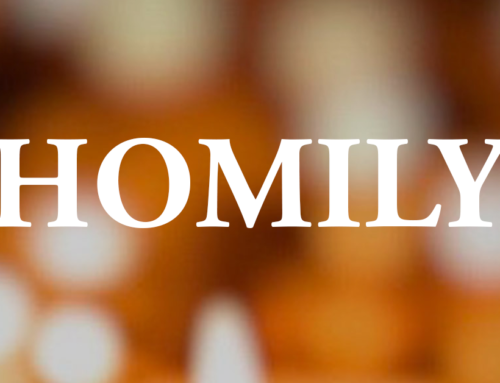“Mary and Martha”
Today’s Gospel lesson from Luke (Luke 10:38-42) might be one of the shortest in our lectionary. And this reading about Mary and Martha may be one of the most recognized stories from the Bible. Two other teachings are when Jesus was not present when their brother Lazarus died, and when Martha expressed to Jesus her deep belief in the resurrection. Both are documented in John’s Gospel, chapter 11.
Mary and Martha, along with their brother Lazarus, lived in Bethany – just a few miles from Jerusalem – and were close, longtime friends of Jesus.
In any event, despite today’s lesson length, it is a powerful message – full of thoughtful considerations. Many have researched, studied and written about this passage. In an attempt to “unpack” the theological meaning of these few verses of Luke’s gospel, there have been Bible studies conducted, articles written, sermons preached, books published (Having a Mary Heart in a Martha World) and retreats given (Honoring Martha and Mary – Everyday Spirituality for Prayer and Action).
Contemplating the personality characteristics of these two influential women in the Bible, much is revealed.
Mary is assumed to be humble, thoughtful, faithful, and trusting.
Martha is viewed as outspoken, grumbling, domestic, practical and tenacious.
These comparatives are not meant to be at all judgmental (even though Jesus used the phrase “the better part”), but to complement of one another: to create team and to bring greater clarity and appreciation to self-awareness and definition.
But often women who exhibit the traits of Mary may be seen as lazy, passive and timid; Martha as bold, pushy, aggressive or bossy.
I recently was asked to introduce myself to a group of people on Zoom. I concluded with, “I am rightly named – busy about many projects.” The facilitator immediately smiled, nodded and shared a Wikipedia link on “nominative determination.” This is a hypothesis of people gravitating to a lifestyle that meshes with their given name. In this article, and through other sources, examples are a man named Bolt who was a Jamaican sprinter; another named Judge was just that; Snowman was a polar explorer and Russell Brain was a British neurologist.
We often thrive on data and facts. This led me to recall a few of the well-known personality tests. And then reviewed several home genetic kits, too, that identify for us “who we are.”
Persons who have completed any of these tests have been reassured, surprised, disappointed and/or even confused.
But really, we need a balance of the essentials – of body/mind/soul – for our journey. So how do we investigate our spiritual personality or identify ourselves as a child of God?
The Church remembered St. Benedict of Nursia (the father of modern monasticism) recently on July 11th. In his Rule of life for those who prescribe to Benedictine spirituality, for our souls he advocates – prayer, obedience, stability and conversion of life – through the gospels – alongside for our physical bodies he guides us to work, study, recreation and rest. It’s a balance. Sometimes Mary, sometimes Martha.
This morning, I invite you to ponder for one to two minutes the spiritual rhythm of who you are – constant worrier, multitasking, always rushing, endless chatter and frequent grumbling — or trusting, focused, steadfast, attentive listener and ever grateful.
When are you Mary? And when are you Martha? Who are the Marys and the Marthas walking amongst and alongside of you?
I will end our time of holy silence and listening with the ring of a bell and Amen.
–Martha Mangan
PDF: Homily for Pentecost 6 (Proper 11C)
Written by Martha Mangan
July 17, 2022


